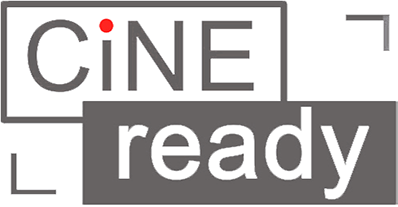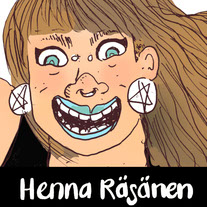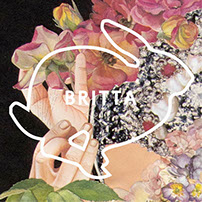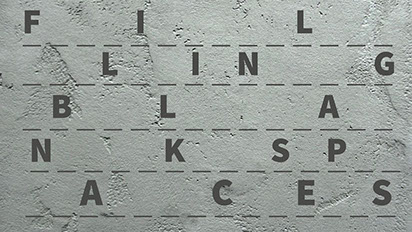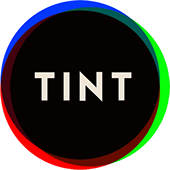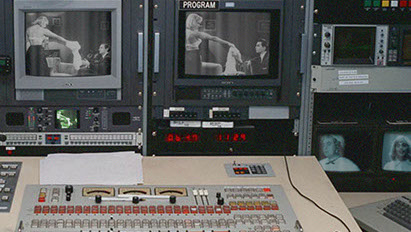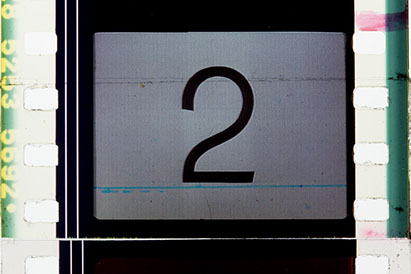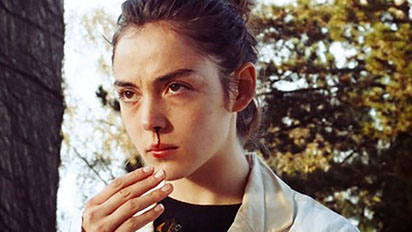SIDE PROGRAMME
OPENING
Festival Opening
Femme Market and reception
Friday, 29.11.19 19:00 at City Kino Wedding
SPEED DATING BRUNCH
Speed dating brunch
in cooperation with the Women's Film Network Berlin and La Vie en Toast
Saturday, 30.11.19 11:00 at City Kino Wedding
invitation only
WORKSHOPS
Saturday, 30.11.19 14:30 - 17:30
Filling Blank Spaces - Counter-narratives of women* in film
in German | open for everybody
Realities of transgender bodies on and off screen
in English | open for everybody
Setting the tone, making a point - Editing opening sequences
in English | only for FLINT* (Female, Lesbian, Inter, Nonbinary, Trans)
Sunday, 01.12.19 14:30 - 17:30
Male - female on set - body language, language and humour as tools
in German | open for everybody
The female gaze in Horror
in English | open for everybody
Color and the colorist
in English | only for FLINT* (Female, Lesbian, Inter, Nonbinary, Trans)
BUY TICKETS
OPENING
Furora’s back! We want to celebrate the beginning of Furora’s 2nd edition and toast with you in our opening reception. While keeping up with Furora 2019, you will also have the chance to check the femme market, where female artists and entrepreneurs present their work.
SPEED DATING BRUNCH
The Speed Dating Brunch is the jewel of Furora: In a relaxed and professional breakfast atmosphere, emergent female filmmakers have the chance to network and exchange with experts of different fields of the film industry. The founders of the networking platform „Women’s Film Network Berlin“ are holding the moderation and the delicious organic food is provided by La Vie en Toast.
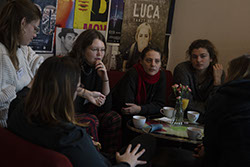
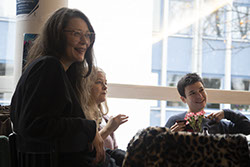
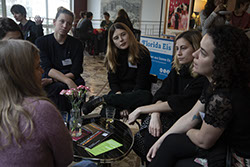
Do you want to take part in the brunch? Then send a message to programm@furorafestival.de.
The places are limited.
The brunch will take place on Saturday, 30 November 2019 from 11:00 until 14:00 in the foyer of the City Kino Wedding.
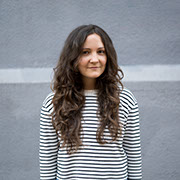
Photo: Shari Mahrdt
Shari Mahrdt is a co-founder and creative producer at Unframed Productions where she currently co-develops the company’s slate of projects, focusing on high-end series with diverse storytelling. She worked several years as the in-house videographer at a high profile Berlin startup where she produced 50+ video pieces, before she founded the Women’s Film Network Berlin with Shannon Getty in 2017. Earlier stations include US-tech-startups in San Francisco and Austin. She holds a BA in Advertising and Marketing from Bournemouth University, UK. Shari is originally from Germany but grew up in Singapore, Sri Lanka and Malaysia.
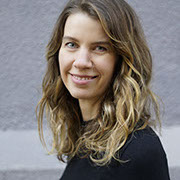
Photo: Shari Mahrdt
Shannon Getty is a screenwriter, creative producer and co-founder at Unframed Productions where she brings her background as a writer and her international perspective to the ideation and conception of series. Her focus lies in connecting with new talent, packaging, co-productions and overseeing the company’s creative strategy. Shannon also co-founded the Women’s Film Network Berlin, a network of international filmmakers which has amassed over 4000+ members and holds monthly events, screenings and fosters an active online community.
Invited guests (experts)
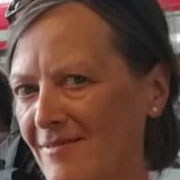
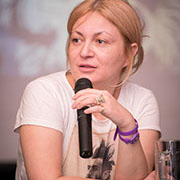
Photo: M. Elbs
Photo: Andreea Vălean
Sabine Elbs - Sales Manager
Since 2004 Sabine Elbs works as a Sales Manager for the german film distribution company Piffl Medien, which is focused on distributing arthouse fiction and documentary films to german cinemas. After working in a movie theater, Sabine changed the course of her career and started working in the film market . Sabine is in charge of the distribution in Germany of the Award-Winning film „The Invisible Life of Eurídice Gusmão”, directed by Karim Ainouz. The film won the prize Un Certain Regard in Cannes Film Festival 2019 and is the Brazilian Candidate to the Oscars 2020.
Andreea Vălean - scriptwriter, film and theatre director
Andreea Vălean is an acclaimed scriptwriter, film and theatre director. She is the author of the theatre play “If I Want To Whistle”, I Whistle, which was turned into the Berlinale Silver Bear-winning film by Florin Serban in 2010. She also wrote scripts for “The Way I Spent the End of the World” and Palme d’Or wining short film “Traffic”, both directed by Catalin Mitulescu. Her short film JOC | Play! will be screened this year at Furora.
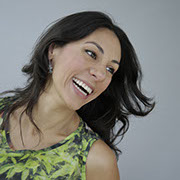
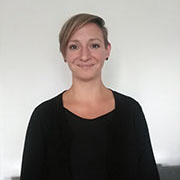
Photo: Tanja Häring
Photo: Felicitas Heck
Catalina Flórez - director, producer, filmmaker
Catalina is a Colombian journalist and filmmaker. In 2003 she emigrated to Germany and studied documentary film direction at the Film Academy Baden-Württemberg and at the EICTV in Cuba. She’s one of the founders of the production company and creative collective Soilfilms, where she works as director and producer of documentaries and image films. She also works as a teacher for the audiovisual storytelling laboratory "Historias en Kilómetros" in Colombia and is responsible for the coordination of the mentoring program for young female filmmakers "Into The Wild". Catalina is currently working on her feature lenght documentary film “Two Velvets”.
Felicitas Heck - Sound designer and dubbing recordist
Felicitas Heck has been working as a freelance sound designer and dubbing recordist since 2003. In 2012, she completed a Master’s degree in Sound Studies at the Berlin University of the Arts (Universität der Künste, UdK) with a
thesis entitled „Voice and Gender“. Prior to this, she studied musicology and trained as a sound engineer. Her work includes award-winning movies, such as Homevideo (Grimme Award), God Is Not Working On Sunday (Best Human Rights Film, Best Film Award/Mexico) and Im Märkischen Sand (Goldene Kamera Digital Award, Best Educational Series).
WORKSHOPS
Facilitated by experts of the field, Furora’s workshop program provides a platform for emergent filmmakers and interested public to upskill and network.
In order to offer a safer space for FLINT* (Female, Lesbian, Inter and Trans*), the technical Workshops are open only to this public. The workshops that handle society relevant themes and reflect on gender relations are open to everyone, regardless of their gender identity. The Workshops will be held in German or English spoken language.
Are you interested in taking part in those workshops? Then please click on „Buy Ticket“ and reserve your seat. The places are limited and the entrance fee is 7€ (paid in advance*).
If your chosen workshop is fully booked, we will put you on a waiting list and inform you in case of free spots.
The workshops will be held on Saturday, 30 November 2019 and on Sunday, 01 December 2019 from 14:30 to 17:30 at the Centre Français de Berlin.
*The fee cannot be refunded after booking via ticketpay.
BUY TICKETS
Workshop
Filling Blank Spaces - Counter-Narratives of Women* in Film
in German spoken language | open for everybody
Saturday, 30.11.19 14:30 - 17:30
It is not a surprise that film and especially film business reproduces and affirms gender discrimination and stereotypes. The silencing of women* and queer perspectives in the history of film happened and happens under various combinable forms: passivity, invisibility, objectification. So, what about the counter-narratives of women*filmmakers, their stories and voices? In this workshop we want to have a look at the innumerable empty spaces in the history of film and film industry regarding women*'s perspectives - at work behind the camera, as directors of fiction and documentary. We want to discuss and exchange about continuities of silencing feminist perspectives in film and film business. In various group constellation, we discuss, analyze, compare, put in perspective and learn from each other about blank spaces in historiography of film. From the beginning of cinema until now, we look at various examples, their work, ideas and ideals. Which voices were and are heard? The workshop is about deconstructing, writing anew, taking one’s place, claiming, collective knowledge production and empowerment.
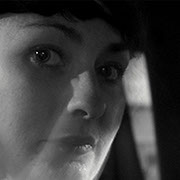
Photo: Aline Bonvin
Aline edits films and videos, and gives workshop for adults, young people and children – always with a heart for intercultural contexts. She also works in the fields of postproduction, communication in moving images. She works in different countries (Europe and Africa) with a predilection for topics around diversity, representation, new technologies, media and (post-)colonialism.
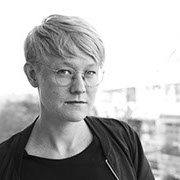
Photo: Irene Izquierdo
Hanna studied art, art history and documentary filmmaking and teaches educational film workshops for teenagers and young adults. Currently, she works on an essayistic documentary film dealing with the continuation of colonial heritage and memories through family history and missionary work.
Aline and Hanna are part of TINT Filmkollektiv , a Berlin-based, international women*s filmmaking collective. TINT members develop, produce, direct, shoot, edit and master documentary, fictional and experimental films. Moreover, they design and hold filmmaking workshops for kids, teens, and adults. TINT organizes work based on solidarity and empowerment, on joint decisions and shared responsibilities. Feminist issues and political involvement are of key importance to TINT members, as well as creative and interdisciplinary exchange. www.tintfilmkollektiv.com
Workshop
Realities of transgender bodies on and off screen
in English spoken language | open for everybody
Saturday, 30.11.19 14:30 - 17:30
In this workshop, we will discuss how to approach the distinction of reality vs. fiction in film and television, particularly in relation to transgender lives. Instead of understanding filmic representations merely as references to or reflections of a preconceived reality, as indeed representations, how could audiovisual fiction be considered real in its own right and how could it relate to and take part in the making of our worlds? The workshop includes an introduction to transgender presence in past and current audiovisual fiction, discussion on e.g. the recent debates on cisgender actors portraying transgender characters, and small-group discussions in which the issue of reality within film and television is further examined.
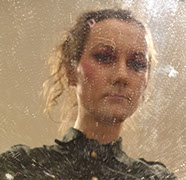
Photo: Jara Pohjonen
More of an activist than an academic, Jara Pohjonen has a BA degree in media studies and is eternally working on her Master’s thesis at the University of Turku, Finland. In the study of film and television, as in life in general, she is particularly interested in the realities and relationalities of class and (trans)gender, informed by her own poor working/underclass and gender non-conforming background. She approaches these topics from a transgender standpoint, with a critical/post-phenomenological framework. For the last decade, she has kept herself busy volunteering at her local queer feminist social-cultural space, organising weekly film screenings and queer/trans political solidarity events, among other things.
Workshop
Setting the tone, making a point - editing opening sequences
in English spoken language | only for FLINT* (Female, Lesbian, Inter, Nonbinary, Trans)
Saturday, 30.11.19 14:30 - 17:30
The first few minutes or even seconds set the tone for any film. They can literally throw you out of your chair because the opener is mindblowing, and classic scriptwriting often is based on the idea that the first minutes should contain the idea of your movie in a nutshell. Also, openers can be a very strong statement about your content, your formal decisions, and your attitude – towards the topic of your film, towards societal questions, and also towards filmmaking issues - meta openers. I would like to discuss several examples that I will bring and that I like because they make strong points, question established narratives, or raise doubts about filmmaking and reality. We will try to find out why they work, and how they work. And I would like the participants, if they want, to bring examples that they like – especially examples that are not so well known in the global northwestern film canon. The participants are also invited to bring a project that they are currently editing, if they would like to have feedback on their opening. If anybody would like to use this opportunity, please contact me beforehand to discuss this part of the workshop in detail.
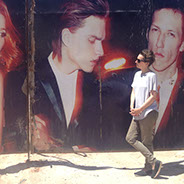
Photo: Sandra Gürtler
Kat works as freelance editor, teacher and assistant editor, and is a member of Berlin based TINT Filmkollektiv, a feminist filmmaking collective.
Kat is part of TINT Filmkollektiv , a Berlin-based, international women*s filmmaking collective. TINT members develop, produce, direct, shoot, edit and master documentary, fictional and experimental films. Moreover, they design and hold filmmaking workshops for kids, teens, and adults. TINT organizes work based on solidarity and empowerment, on joint decisions and shared responsibilities. Feminist issues and political involvement are of key importance to TINT members, as well as creative and interdisciplinary exchange. www.tintfilmkollektiv.com
Workshop
Male - female on set - body language, language and humour as tools
in German spoken language | open for everybody
Sunday, 01.12.19 14:30 - 17:30
Nicole Wiese invites you to exchange your own experiences regarding behaviour in groups with different gender constellations. Using examples and small exercises, she brings the relevance of controlled (body) language and humour closer. In addition to the confident appearance and the question of how you get what you want, the question is to what extent one's own ego plays a role in the realisation of goals and the projection of a created enemy image. The aim of the workshop is to counteract uncertainties regarding one's own behaviour in group constellations and to encourage a confident appearance.
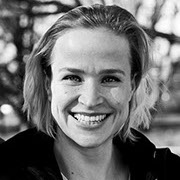
Photo: Chris Schmidt
Nicole works as a freelancer with lead singers* and bands such as Kraftklub, LionsHead, Glasperlenspiel or Lena Meyer-Landrut in live performance and music videos. Through her studies of choreography, choreology (LMA movement analysis), management and coaching, she became a specialist for movement, its psychophysiological significance and movement in space. Originally she started in the area of theater but quickly expanded to the film scene by training actors and directors to execute and use their own movement in a more controlled way.
Workshop
The female gaze in Horror
in English spoken language | open for everybody
Sunday, 01.12.19 14:30 - 17:30
The horror genre is notoriously male-dominated behind the camera, but how does it look when women write and direct their own stories in horror? How do female perspectives in horror depart from the storytelling conventions of the stereotypical mainstream? Which formerly obscured desires, fears, transgressions, and social critiques can the female gaze illuminate? In this master class, Sara Neidorf (festival curator) and Julia Ostertag (filmmaker) will discuss the potentials and powers of the female gaze in horror and present some of the exciting voices and visions that have emerged in recent years, using a selection of clips from horror films made by women, including work that has been screened at Final Girls Berlin Film Festival and Julia Ostertag’s own films. Open and critical discussion is welcome throughout.
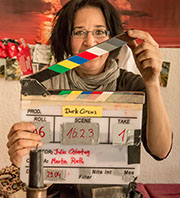
Photo: B. Lippke
Julia Ostertag (b. 1970, Leonberg, Germany) shot her first experimental films in the early 90s. She studied with underground film icon and radical feminist Birgit Hein at Hochschule für Bildende Künste in Braunschweig, Germany. Julia Ostertag is director, cinematographer and editor and runs her own one-woman-film production. Her short films, features and documentaries focus on gender roles, female sexuality, alternative life styles, subculture, music and queer topics. Her occult horror mystery film DARK CIRCUS (85mins, 2016) was screened in 15 countries and won several awards.
v%20renay.jpg?crc=254003576)
Photo: V. Renay
Sara Neidorf (b. 1990, Philadelphia, USA) is the co-director of Final Girls Berlin Film Festival, which showcases horror films made by women and non-binary filmmakers (https://finalgirlsberlin.com). She specializes in queer, feminist, cult, and horror cinema and also co-organizes and curates the Berlin-based screening series Queer Film Klub and Women on the Verge. She also formerly worked for XPOSED Queer International Film Fest and Entzaubert Queer DIY Film Fest. She completed a B.A. in Film Studies and Comparative Literature at Bryn Mawr College and moved to Berlin in 2012. When she’s not digging up queer horror gems, she’s teaching and playing the drums.
Workshop
Color and the colorist
in English spoken language | only for FLINT* (Female, Lesbian, Inter, Nonbinary, Trans)
Sunday, 01.12.19 14:30 - 17:30
”Colors, like features, follow the changes of the emotions”
What do I feel when I see colors? What is the first thing that my eyes fall on when I look at an image? Am I seeing the right color? What is color-grading and what is the difference between color-grading a commercial, a documentary, a music videos, and a fiction film?
Color influences our mood and emotions to a considerable extent. Whether in films, music videos or documentaries, there is nowadays a high demand for color correction and color grading. But how can we use color as a tool in storytelling? The aim of this workshop is to equip you with the right tools and best Practices when it comes to approaching color in film. You will get to learn different looks for films, color palettes and at what stage you can begin to consider the color and what affects it. Also, we will do some magic on some digital material and turn it into filmic material. Short edits and colorful images as examples are welcome! You can send these via email at sallyshamas@gmail.com
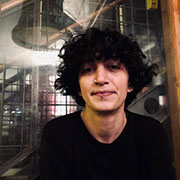
Photo: Max Rocco
Sally Shamas is a Digital Colorist from Beirut who is currently based in Berlin. She has been working in film for the last 13 years. During her studies, she worked for 4 years as an editor as well as camera crew and was the first female Digital Image Technician in Lebanon. Being trained at the beginning of her career as a colorist by 4 international colorists, she developed a special approach and passion toward colors. Having worked at a major Postproduction house in Beirut, she got the chance to collaborate with many talented filmmakers and work on commercials for many leading agencies like Leo Burnett and Grey World Wide amongst others.
